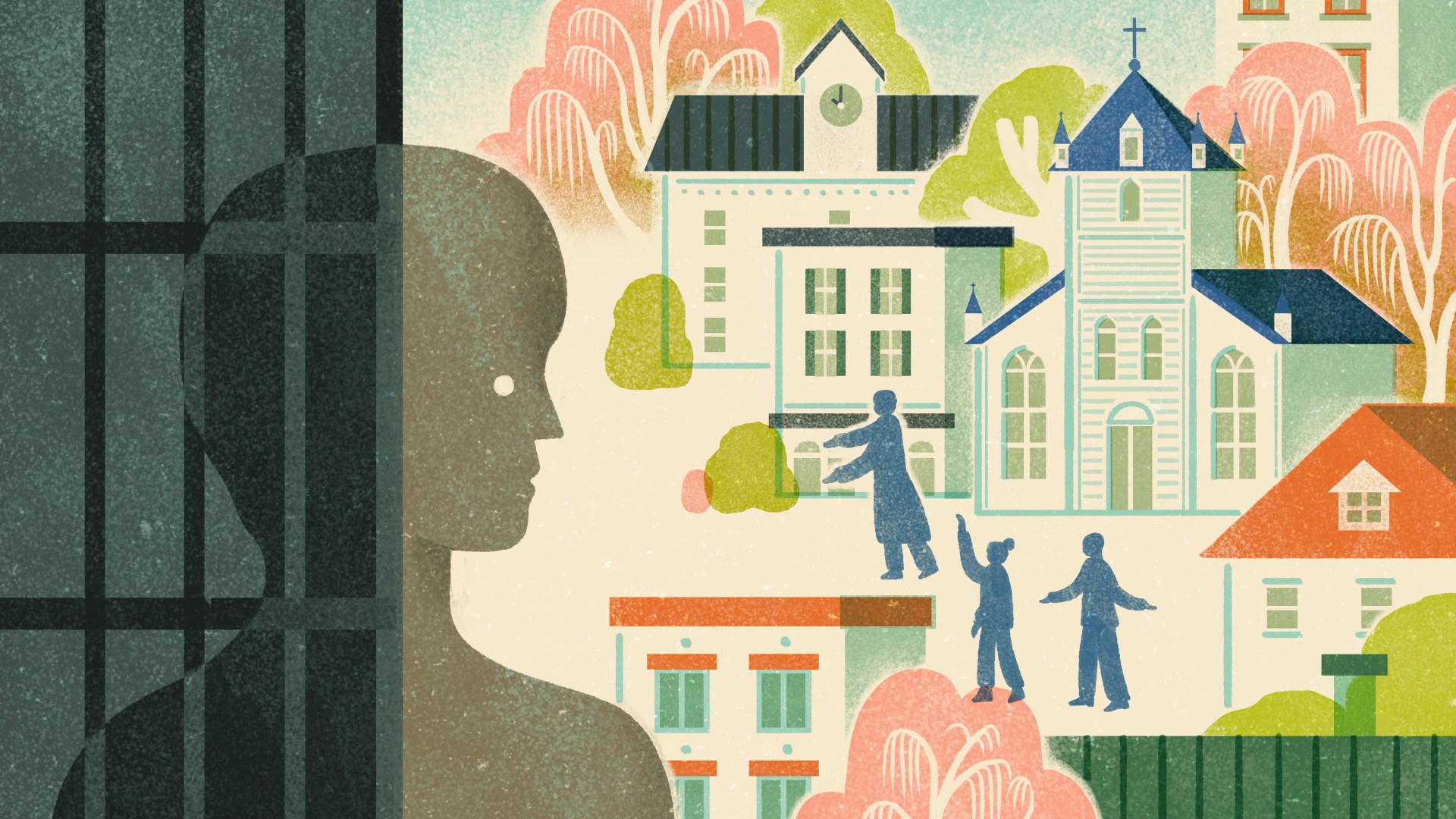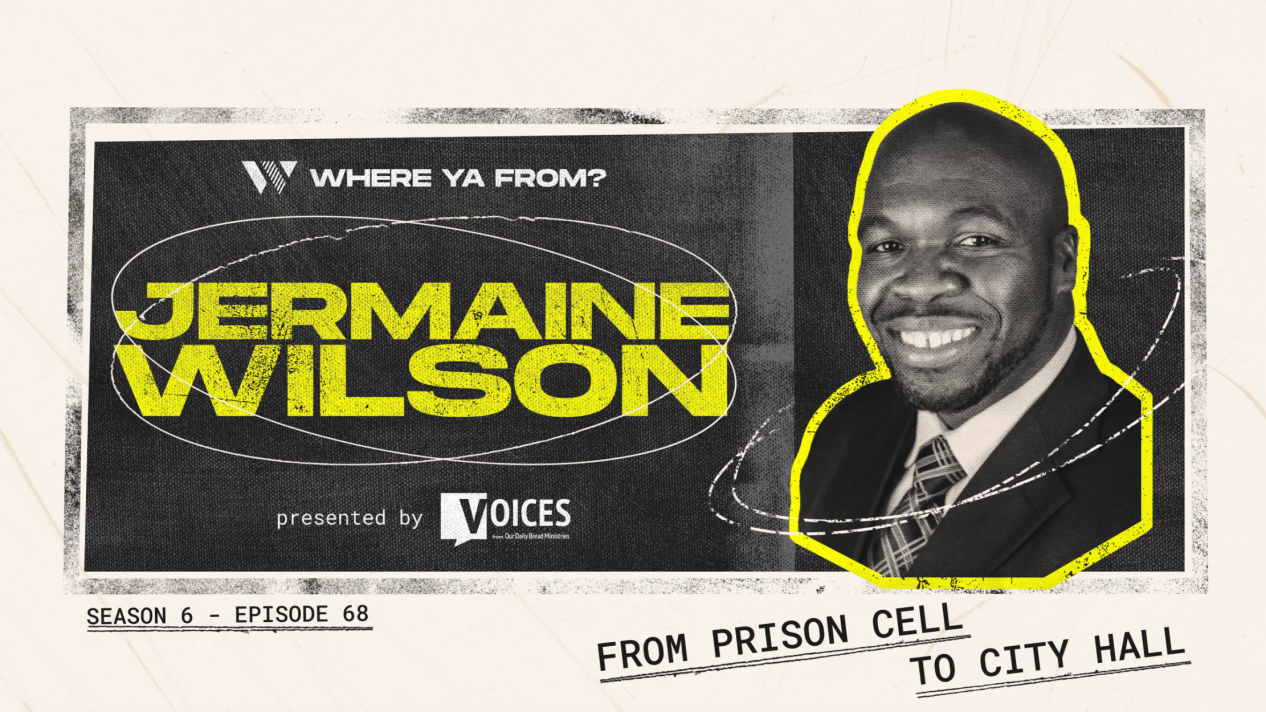Free for CT Readers: If you’re interested in hearing more from Prison Fellowship, you can sign up to receive their free I Surrender devotional. Keep reading to learn more.
Joy Block-Wright started high school feeling empowered, excited, and like she was grown up. As a member of the class of 1984 at Central High School in Tulsa, Oklahoma, Block-Wright’s freshman class was the first to be part of the high school rather than the junior high. She loved riding with her big sister to school, becoming friends with an older crowd, and taking vocational-technical courses in fashion design and production. Block-Wright graduated high school and moved to California to pursue further fashion education, but friendships and work increasingly led her away from that dream. She stopped going to school and was working for a military base when, as Block-Wright puts it, she started “drifting off and doing things that [she] shouldn’t have been.”
Those things included marijuana, PCP, and crack cocaine. What began as a recreational habit at parties rapidly became an addiction that led to Block-Wright spending much of her twenties in and out of correctional institutions. At the age of 30, Block-Wright was still addicted to drugs and became romantically involved with a man who was physically and emotionally abusive. Block-Wright was soon pregnant. After her first child was born, she quickly became pregnant again. When both of her children were very young, Block-Wright stole tens of thousands of dollars from a bank. She was convicted of credit card fraud and sentenced to federal prison.
“That was the first time I went to prison while having children, and it was heartbreaking for me,” said Block-Wright. Her mother called her after picking up Block-Wright’s children from the shelter where they had been staying, and she told her that God loved her. Block-Wright credits that conversation with the beginning of her faith. Behind bars, she began to read the Bible daily and experienced a profound spiritual transformation. "It was my ‘aha’ moment,” she reflects. “I was ready to make that change."
Upon her release, Block-Wright continued her journey of rebuilding and restoration. A new job in the mortgage industry and regular church attendance marked the beginning of a fresh chapter. While maintaining full-time employment, Block-Wright enrolled in night school and began studying for her real estate license.
But when the time came to sit for the exam, Block-Wright received a form letter in the mail denying her admission due to her criminal record. There was no opportunity to appeal.
It was “heart-wrenching,” says Block-Wright. She had been diligent and hardworking on her journey toward a better life—working full-time, studying and attending classes at night, and raising her two children. “And,” she says, “it was really all for nothing.”
Block-Wright’s experience mirrors that of countless other returning citizens, revealing how the journey toward a second chance is often fraught with barriers that fail to account for individual growth and the full measure of human redemption.
The Rocky Road to Returning
One in three Americans has a criminal history, which prevents them from accessing many educational, housing, and employment opportunities due to nearly 44,000 legal barriers.
It's hard to believe that a dense thicket of red tape can keep millions of people from building fruitful lives, but Americans with criminal records face seemingly endless blockades on the road to stability. Returning citizens don’t qualify for student loans or public housing and are often unable to access social services such as food assistance programs. And, as Block-Wright discovered, legal restrictions prevent people with criminal histories from obtaining the occupational licenses required for many professions, ranging from cosmetology to health care.
These one-size-fits-all licensing bans are touted as a safety measure, assuring the public that their plumber or hairstylist won’t be a risk. But the irony is, broad restrictions often achieve the opposite: they disempower all individuals with criminal histories, pushing them toward instability and potentially increasing the very risks they aim to mitigate. The link between steady, accessible employment and reduced crime is undeniable.
Research consistently shows that those with full-time jobs are considerably less likely to re-offend. In one study by Prison to Employment, returning citizens who held jobs for a year after release had a recidivism rate of just 16% over three years, compared to 50% for their jobless counterparts. This correlation is further underscored by data from the National Institute of Corrections: a chilling 85-89% of those rearrested after release were unemployed.
For Christians, this approach also stands in opposition to a holistic understanding of grace, justice, and human dignity. The Bible abounds with passages that describe God’s redemptive nature as one that holds mercy and righteousness in perfect union and calls for justice that restores. Humanity is commissioned to act in accordance with their status as image bearers, which begins with remembering that everyone else is an image bearer, too. The prophets declare that God desires justice, mercy, and humility, while the psalms cry out for restored joy.
Even amid these calls to action, the core message of Scripture remains one of redemption. Hebrews urges believers to support each other in love and good deeds (10:24-25), while Paul reminds readers that their transformation in Christ marks a new beginning (2 Corinthians 5:17). Indeed, the story of Scripture is ultimately one of restoration, acknowledging sin's weight but offering hope for new life through God's grace.
Standing for Second Chances
Upon release, Block-Wright worked tirelessly to regain custody of her children, remain sober, and secure employment. The fines and fees she had to pay after being released from prison were so immense that it was more than a year before she could start to save money for a car or reactivate her driver’s license. She had to rely on public transportation, which often meant long walks between bus stops with her young children in tow.
These challenges fueled Block-Wright's passion for improving life for other returning citizens. As a Prison Fellowship Justice Ambassador, she encourages policymakers, churches, and businesses to promote second chances in meaningful ways that address the types of barriers she faced after incarceration. Block-Wright has advocated for changes in her own state’s legislation, and thanks to her tireless efforts, Oklahoma now boasts some of the fairest licensing practices in the country thanks to the passing of SB1691, which requires licensing boards to conduct individualized assessments that consider both criminal histories along with rehabilitation progress in determining whether or not a person can safely work in a specific licensed profession.
Beyond the personal empowerment it brings, employing returning citizens benefits society as a whole. For businesses, this translates to higher employee loyalty and lower turnover. Studies show companies that embrace second chances often enjoy better retention and reduced hiring costs. Furthermore, by lifting unnecessary licensing bans, the U.S. could unlock an estimated $87 billion in annual GDP growth, as individuals with criminal records gain access to sustainable employment across diverse fields.
Reshaping Narratives
While the economic benefits of second chances are significant, their true value lies in the personal transformation they ignite. They are, as Block-Wright says, are “an opportunity to take a step forward instead of a step back.” Rebuilding dignity, strengthening communities, and providing for themselves and their families are the cornerstones of a life beyond criminal history.
And for nearly half a century, Prison Fellowship has supported these cornerstones as it fights for transformative justice in America. More than just advocating for policy reforms, Prison Fellowship has been instrumental in reshaping perspectives on incarceration and rehabilitation.
Prison Fellowship invites you to partner with them in creating a justice system infused with God's grace and hope.Whether through advocacy, volunteering, or prayer, you can become part of a movement that champions policy change while igniting personal transformation and community healing.
Visit the Prison Fellowship website to download your free copy of I Surrender: A Collection of Devotionals Written by Prisoners, a series of short reflections that paint a picture of how each prisoner grew in Christ by studying God’s Word and surrendering to him.
Take action today and help rewrite the narrative around justice that restores.
Posted

